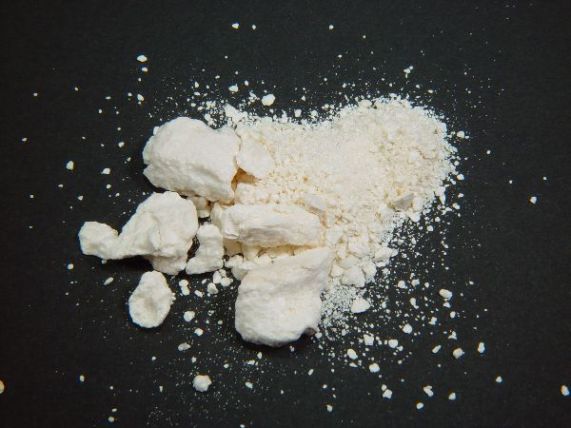American Healthcare Should Adopt the Cocaine Standard


We Americans have a certain schizophrenia about health care. It is “mom-and-apple-pie” to bemoan the wait times, the hours of operation, the check-in, the lack of house-visits and primarily the cost of care. Nevertheless, people view it as a utility. No, that is certainly not correct. Utilities are paid for. The more electricity, water, sewer service and television channels one gets, the more one expects to pay. Medical care in the USA is viewed as a right, like clean air, without even an EPA-like agency to safeguard its continued availability.
Like expecting free water, free food, free housing and free services of a local business woman of negotiable virtue, free healthcare is a myth. It is a personnel-intensive, material-intensive industry which suffers under harsh regulations.
Healthcare is valuable.
Currently, 18% of American GDP[1] goes to providing healthcare.[2] For an average gross income of $52,000, therefore, this amounts to $9300/year. All receive healthcare yet almost half of Americans pay NO income tax.[3] So the current healthcare debate could be rightfully changed in regards to a national free healthcare scheme to:
“Why should about half of Americans pay for ALL of the healthcare?”
There are some obvious answers:
Epidemics of preventable disease are costly to all people, not just the victims.
Aesthetically, unnecessary disease and death are unpleasant for all.
Prolonging a useful career is beneficial not just to the individual but the society.
I understand that this is not the usual argument, which is couched in terms of a moral imperative.
The question is why anyone with enlightened self-interest should choose to lose one’s possessions and livelihood, earned by their own labor, to help another.
If one chooses to be charitable, the argument is no longer a political one and outside the realm of this article. There are numerous opportunities to donate and have been available for over a couple millennia.
The issue is one of political compulsion, and for extraordinary actions, that of using the bayonet of government to extract payment from a free citizenry to supply a service which is otherwise available, extraordinary arguments must be mustered. That is the standard which must be met before “free health care” becomes reasonable for a free and democratic society.
Contrary to fright tactics, healthcare is provided to all in the United States. I am not saying all care, all the time, in all places and for all the levels of care to which a patient might desire. I am saying that free care is provided. People do not die in the streets and have not since the Spanish Flu of a century ago.
What care is provided?
Specifically, every hospital is mandated to evaluate all those presenting with a potentially emergent condition. (Think chest pain, MVA, pregnancy). On-site care must be provided and transfer to a higher level center if that care is indicated. This is not “dumping” as that is prohibited. (See COBRA regs). The hospital and doctors eat the cost.
Newborn infants, even those requiring months of intensive care, are covered with no cost to parents. (Over the years, over half of my patients fall into this category.)
Specific diseases, such as congenital heart disease, are treated gratis by teaching hospitals.
Childhood immunizations are provided free.
Is this enough? For an “immortal” twenty-something, generous in the extreme, as he needs none of the services except the removal of inconveniently-impaled skateboards on occasion. It is hardly surprising that as a group they view compulsory medical insurance as an unfair tax. It is.
For those of us with fewer years ahead than behind, not so much. We all will need health care unless we make arrangements to die in another bizarre skateboard-related mishap. Disease, while not being avoidable, is nevertheless unpredictable. Catastrophic costs visit the provident as well as the foolish. It seems reasonable to insure only against the unpredictably catastrophic and not against what should, for a provident person, be viewed as the “cost of doing business.”
Where then can costs be cut?
Litigation is a runaway train. The USA is blessed with more lawyers per capita than any nation in the history of the world. We have more living lawyers than all of history back to Hammurabi with scant improvement to a more just society. American juries seem to vie with each other to add zeros to judgments. Outrageous claims are made for “pain and suffering” which have no monetary measure nor recompense. Money is passed out wholesale for illusory injuries such as loss of psychic powers.[4] Even after juries have come to a decision to acquit a capricious lawsuit, jurors still inquire whether they “might give some money to the plaintiff.”[5] From whence comes this supposed charity? Presumably from the innocent doctors.
The whole medical system is canted to the idea that fighting a malpractice suit is futile. No matter how trivial the mal-occurrence, or how avaricious the plaintiff, the doctor will always lose. Applications for hospital credentials give copious space to record each suit but do not even allow the likelihood that a suit would go to trial and the doctor be found innocent, asking again and again “So it was settled?” rather than conceiving of the chance that the defendants prevailed. Wasting weeks in trial and years of litigation does not serve to reduce the price of medical care nor the availability of doctors.
This dubious success of the legal trade has spawned another costly extravagance. Regulation upon regulation attempt to institute by fiat what can only be accomplished by professionalism. Every time a surgery starts, even for a cesarean section, a “time out” procedure must be done. This was instituted to ensure that appropriate legs were removed when needed. I fail to see how one is going to open the wrong uterus. The procedure generates one more piece of paper that is never subsequently looked at. After multiple dozens and dozens of pettyfoggingly silly regulations, you create a huge patient chart that has all the forms required and is yet impossible to discern any medical judgment therein. Lawmakers, lawyers to a man, feeling neglected, have instituted all their pet peeves into requirements such as the Congenital Heart Disease Screening, a simple-minded rather insensitive test which any pediatrician worth his salt would ignore in favor of a good stethoscope and a quiet room. The false-positives of the screen generate $9000 every time it fails. I know of no infants it has discovered and many it has failed to discover who had real heart disease.
In a larger sense, the patients’ attitude in regards to healthcare must change if any savings will ever be realized. ER visits are certainly abused.[6] Misapprehensions about the appropriate use of emergency rooms are rampant, with Medicaid and Medicare recipients leading the pack. Fully 64% of ER visits are too inconsequential to justify its use. At the cost of $1200+ for each cold ( disease an infant will get about six times a year normally), they are a waste of money. Considering the 4-hour wait (compared to 20 minutes for an urgent care center and even less for a doctor’s office), they are as burdensome for the patients as they are wasteful.
Abuse of emergency rooms is seen most often by people who are unaware of the value of healthcare. If healthcare is free than a visit to and ER is as good street theater as any.Healthcare is valuable.When no value is ascribed to it, it is treated as if it has no value.
What does have value are illegal drugs. We are beyond the tipping point when 90% of the circulating currency has been used in a drug buy at one time or another.[7] The narcissistic abuse of illegal drugs by an overly wealthy, indulgent and non-introspective population creates its own health care problem. Nevertheless, it is a cash market amounting to $110billion in 2013 and $125billion today.[8] While not anywhere near the cost of national healthcare, it is a fair bit of change.
To dissuade these feckless suffering victims of America’s health care crisis, I propose that they EACH patient fork over a dime bag of cocaine before seeing the doc, a real object lesson in the value of health care.
I suppose that arrangements could be made for the user’s drug of choice, say 10 grams of weed, a couple oxycontin, or a few tabs of MDMA. Conversion table could be posted, giving the waiting public something to do in the interminable wait of overcrowded waiting rooms.
With luck, this would allow patients to accurately assess their needs for professional hospital care. It would provide a fund forthe hospital to cushion any perturbations in the payments cycles, selling off the cocaine as needed to make ends meet and doing in small part what needs to be done to make American Healthcare the envy of a troubled world.
[1] 17.95 trillion USD (2015)
[2] https://www.forbes.com/forbes/welcome/?toURL=https://www.forbes.com/sites/danmunro/2015/01/04/u-s-healthcare-spending-on-track-to-hit-10000-per-person-this-year/&refURL=https://www.google.com/&referrer=https://www.google.com/
[3] http://www.marketwatch.com/story/45-of-americans-pay-no-federal-income-tax-2016-02-24/
[4] http://lawhaha.com/plaintiff-sues-for-loss-of-psychic-powers/
[5] 2013, Floyd Co. Ga, Duke vs et al.
[6] http://blog.bcbsnc.com/2014/04/5-emergency-room-myths-busted/
[7] http://news.nationalgeographic.com/news/2009/08/090816-cocaine-money.html
[8] https://en.wikipedia.org/wiki/Illegal_drug_trade_in_the_United_States
‹ Back







